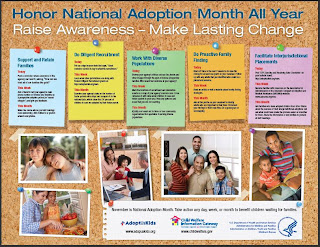
Amidst dwindling hopes of any significant legislative progress under the hand of our current national executive officer (that's you, DADT!), there's still a definite cause of LGBT celebration from the president. Less than halfway through his first term, Barack Obama has appointed more openly gay officials than any other president in history, as well as the first openly trans appointee.
Gay activists say the estimate of more than 150 appointments so far – from agency heads and commission members to policy officials and senior staffers – surpasses the previous high of about 140 reached during two full terms under President Bill Clinton. So, in less than half a term, Obama has had more LGBT appointments than any other president, including double-termed ones.
“From everything we hear from inside the administration, they wanted this to be part of their efforts at diversity,” said Denis Dison, spokesman for the Presidential Appointments Project of the Gay & Lesbian Leadership Institute.
In a sign of how times have changed, few of the appointees – about two dozen required Senate confirmation – have stirred much controversy. It’s a far cry from the 1993 furor surrounding Clinton’s nomination of then-San Francisco Supervisor Roberta Achtenberg as assistant secretary for Housing and Urban Development.
Achtenberg was the first openly gay official to serve at such a senior level, and she won confirmation despite contentious hearings and opposition from NC's former Sen. Jesse Helms, who denounced her as a “militant extremist.”
Gay activists, among Obama’s strongest supporters, had hoped he would be the first to appoint an openly gay Cabinet secretary. While that hasn’t happened – yet – Obama did appoint the highest-ranking gay official ever when he named John Berry as director of the Office of Personnel Management, which oversees the nation’s 1.9 million federal workers.
Other prominent names include Nancy Sutley, chairwoman of the White House Council on Environmental Quality, and Fred Hochberg, chairman of the Export-Import Bank. Obama also named Amanda Simpson, the first openly transgender appointee, as a senior technical adviser in the Commerce Department. And David Huebner, ambassador to New Zealand and Samoa, is the third openly gay ambassador in U.S. history.
White House spokesman Shin Inouye confirmed the record number, saying Obama has hired more gay officials than the Clinton and George W. Bush administrations combined. He said Obama “is proud that his appointments reflect the diversity of the American public.”
“He is committed to appointing highly qualified individuals for each post,” Inouye said. “We have made a record number of openly LGBT appointments and we are confident that this number will only continue to grow.”
Dison’s group lists 124 of the appointees on its website. He said the remainder are not listed because they are lower-level officials not formally announced by the White House.
“We learn about a lot of these through informal networks and then work to confirm that they are indeed appointed and that they are openly LGBT,” Dison said.
One Obama nominee who met some opposition was Chai Feldblum, a Georgetown University law professor nominated to serve on the Equal Employment Opportunity Commission.
Concerned Women for America accused Feldblum of playing “a major role in pushing the homosexual and transsexual agenda on Americans.” Other conservative groups blasted her role in drafting the Employment Nondiscrimination Act, a bill that would ban employers from discriminating on the basis of sexual orientation or gender identity.
Obama made Feldblum a recess appointment in March after an anonymous hold in the Senate held up her confirmation for months.
Another target for conservatives was Kevin Jennings, founder of the Gay, Lesbian, Straight Education Network, who was named to oversee the Education Department’s Office of Safe & Drug Free Schools. More than 50 House Republicans asked Obama to remove Jennings from the post after reports surfaced about advice he gave more than 20 years earlier after learning a gay student had sex with an older man.
Jennings conceded that he should have consulted medical or legal authorities instead of telling the 15-year-old boy that he hoped he had used a condom. The Obama administration defended Jennings and declined to remove him.
It was in early 2008 that the Gay & Lesbian Leadership Institute focused its Presidential Appointments Project on steering thousands of resumes of qualified gay professionals to White House jobs. Dison said that push has helped increase the numbers, though it certainly helped to have a more receptive White House.
The more LGBT folks that work within government at lower levels, the more visibility there is for the entire movement, and the more change will ultimately occur at higher levels.
In the end, lots of small advancements add up to huge ones.
 GetEQUAL and Marriage Equality USA are staging protests across the country to show the inequality in our nation's marriage laws.
GetEQUAL and Marriage Equality USA are staging protests across the country to show the inequality in our nation's marriage laws.


















 Highest Number of Same-Sex Couples:
Highest Number of Same-Sex Couples:








